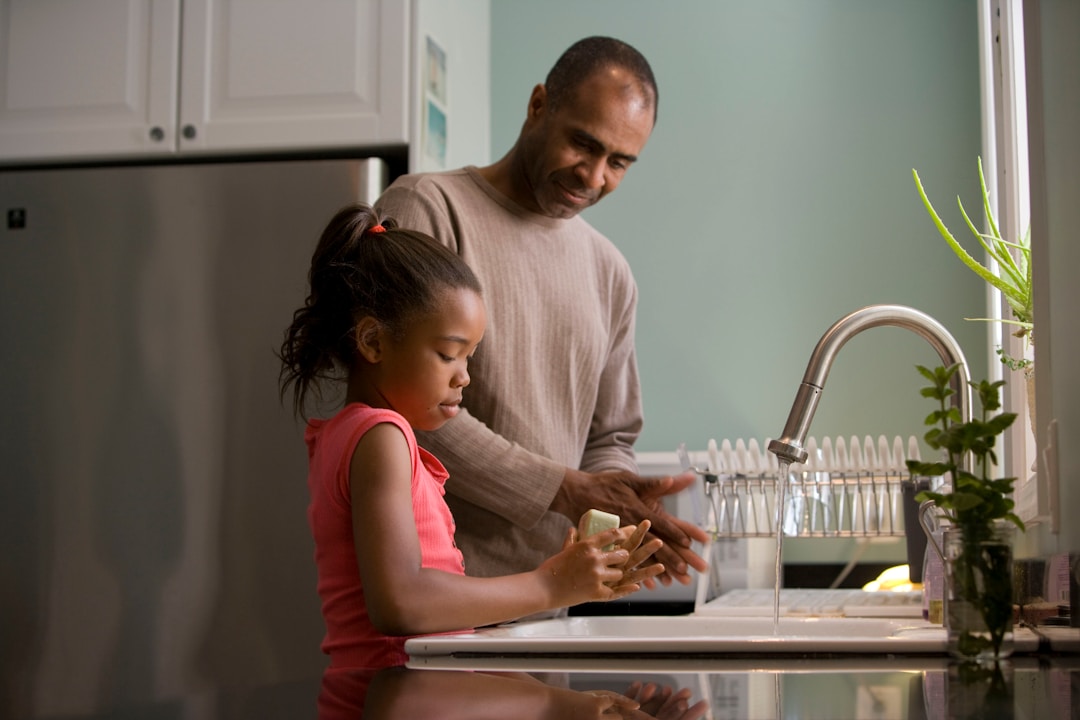Making the effort to improve your family life can bring your family closer, and prevent disagreements from affecting everyone’s happiness. However, given the fact that most family members tend to have a significant age gap, finding ways to accommodate everyone can seem tricky. Luckily, there are a ton of easy steps you can take to make everyone’s time at home more fulfilling, and we explore four of these below.
1. Develop a shared interest.

A great way for families to bond is by finding a shared interest and participating in it regularly. If one of your kids has recently taken up an interest in numerology, for instance, engage them and see if this interest brings you closer as a family unit. Exploring your life path numbers can be a great way to understand the method to each family member’s madness. If by spending quality family time by exploring life path numbers you discover that your eldest child is a life path number 5, it could explain their gregarious nature and love for the outdoors. Having a shared family interest is a nice way to relax and bring the family closer together.
2. Save money on your utility bills.

Figuring out some tips for saving on electricity can cut down your electricity bill and significantly boost your family’s monthly budget. Lowering your energy bill can be achieved by raising the energy efficiency in your home and one way to do this is by checking your refrigerator’s temperature settings on a regular basis. Alternatively, using appliance thermometers is another way of figuring out these temperature settings and they are generally inexpensive. Pay close attention to your refrigerator temperature to avoid spending a ton of cash keeping food colder than it needs to be in the first place.
When using household appliances like your washing machine and dishwasher, make sure that you’re running a full load of clothes or dishes to minimize the number of cycles. To save on energy costs with your dishwasher, avoid over-filling it to allow room for water to circulate. Also, be sure to open your dishwasher door the moment a cycle completes. In this state, your dishes are still warm, meaning that evaporation will be accelerated. The implication of this being that you’ll use less energy by bypassing the dry setting.
Changes in temperature are also likely to affect your home’s energy efficiency, so making small changes like adjusting your thermostat according to weather and temperature changes can help you consume less energy. Having a constant temperature on your water heater, and opening blinds, curtains, and drapes to let in natural light are additional steps you can take to have a more energy-efficient home. What’s more, the added savings to your energy bill can also add to your family’s financial security.
3. Actively listen to your teen(s).

Raising children isn’t easy and for some parents, this task gets harder as their children approach adolescence. In this transitory half child/half adult stage, your adolescent is battling identity issues, tremendous body changes, and at the same time, working to develop their sense of self and autonomy. You may read this as rebellion, and in the process push them further away. To improve your relationship with your troubled teen, psychologists recommend these 5 tips for helping your troubled teenager through these turbulent years.
Signs of poorer mental health start to show during adolescence. If you notice changes in your teen’s behavior such as losing interest in activities they previously enjoyed, eating too much or too little, irregular sleeping habits, and constant irritability, make a plan to visit a clinical psychologist. Encourage them to be open with their doctor, even if it may be uncomfortable at first.
Encourage your teen to express themselves. A great way to do this is by helping them get a journal and use it. Not only does journaling as a habit come highly recommended by therapists, but it also gives your teen a safe and creative space to express themselves, as sincerely as possible.
4. Learn basic life support skills.

Learning basic life support (BLS) gives you the confidence to know how to act during an emergency‚Äì‚Äìespecially if you have an infant in your home. What’s more, if you have a busy schedule, a number of online courses are available and they offer BLS certification, ACLS (advanced cardiac life support) certification, and PALS (pediatric advanced life support) certification. If you regularly use a babysitter, make sure that they have basic BLS skills, or if not, arrange for them to take a BLS class or CPR course.
If you’re wondering what is the difference between BLS and ACLS, the main factor is the level of advancement between the two. As the name suggests, ACLS is a more advanced and sophisticated course that builds on the basics you develop during BLS such as basic CPR, and first aid skills.
Homelife can get complicated, but with these four life hacks, it won’t stay complicated for long.



